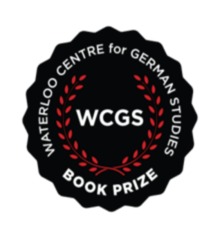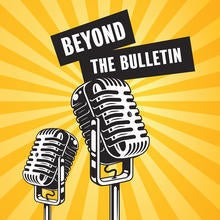The Daily Bulletin is published by Internal and Leadership Communications, part of University Communications
Contact us at bulletin@uwaterloo.ca
Submission guidelines
Editor:
Brandon Sweet
University Communications
bulletin@uwaterloo.ca

A message from the Student Success Office.
The Student Leadership Program (SLP), originally developed in 2008, has evolved to reflect recent research, best practices and student feedback. The program, which aims to help students explore and enhance their leadership knowledge, has been redesigned to provide a more enriching and reflective experience.
The new program design acknowledges that leadership development also happens outside of the classroom and recognizes students for their on-campus involvement. The SLP now consists of three core elements:
Students can complete all three components to earn the Certificate in Leadership Development.
Registration for February workshops opens Monday, January 25 in Portal. The SLP continues to be open to all current undergraduate and graduate students with a flexible pathway to completion. Campus partners and student groups can also request custom workshops. To learn more about the program, please visit our website.
Several creative works by Waterloo staff were recognized by CASE District II this week. This organization recognizes top achievements in alumni affairs, public affairs, communications, recruitment, marketing, fundraising and other initiatives that support the advancement of post-secondary institutions.
Congratulations to:
All of these projects require creativity, strategy and multiple collaborators to pull them together, and they represent Waterloo well with our Canadian and American peers. Congratulations to everyone involved.

The University of Waterloo has a number of experts available for comment on various aspects of the COVID-19 pandemic.
 The Pfizer and Moderna COVID-19 vaccines have fueled both hope and falsehood. Here, Professor Kelly Grindrod debunks the most common myths she and her colleagues have heard about the new COVID-19 protection.
The Pfizer and Moderna COVID-19 vaccines have fueled both hope and falsehood. Here, Professor Kelly Grindrod debunks the most common myths she and her colleagues have heard about the new COVID-19 protection.
Professor Grindrod was named Canada’s Pharmacist of the Year and is an expert in vaccines.
Reality: They don’t. The vaccine has a short amount of code to build the spike protein from the virus. It’s useful to think of the vaccine like a post-it note someone gives you. You see the note, remember it, and throw it out. The note doesn’t change you, it just gives you some information to remember. Similarly, the mRNA vaccine gives the body information to recognize a piece of the virus. The body then gets rid of the note but keeps the memory. When your body sees the virus in the future it’s ready to fight it.
Reality: These vaccines are generally considered to be “preservative free”. They have the mRNA, which is wrapped in a fatty layer for protection. There is also a common ingredient called polyethylene glycol (PEG) which helps to make the fatty layer, and salts, sugar, and water. There are no blood products, fetal cells, mercury, or formaldehyde.
Reality: We are used to slow vaccine research. The slowness is largely due to delays in funding and in coordinating the various stages of research. COVID vaccine research has been much faster because of incredible cooperation, coordination, and investment around the world. This meant the stages of research were better streamlined, and these factors also allowed for the rapid recruitment of more people into large, well-designed trials. There is also a lot of virus circulating in communities, which meant people who got a placebo vaccine got sick faster than usual. All of these factors sped up the research on mRNA vaccines.
Further, before the pandemic, the mRNA vaccines were already being studied for ebolavirus, zikavirus, cancer, and other illnesses. The technology could be quickly adapted to COVID-19. mRNA vaccines are also much faster to manufacture than traditional vaccines that typically have to be grown in a lab.
Reality: The vaccines are safe — that was one of the main questions answered by the clinical trials. Vaccine side effects usually occur within days of a vaccination, but some rare side effects may occur up to 6 weeks after the vaccination. At the time of approval, both mRNA vaccines had at least 6 weeks of data in most participants. Now, we need data on a much larger group of people to identify any rare side effects that may occur in 1 in a million people. With millions now receiving the vaccine, there have not been any major concerns, but regulators continue to monitor adverse event reporting programs around the world.
We are waiting for some long-term efficacy data, however. While we know the vaccine protects most people in the short term, we still need data to know how long that protection lasts (months or years), and if the vaccine will continue to be effective when the virus mutates. We also need to know if a vaccinated person is exposed, can they be contagious even if they don’t get sick. The ongoing trials will help us answer these questions.
Kelly Grindrod is associate professor; programmatic assessment officer; and Ontario College of Pharmacists Professor in Pharmacy Innovation at the School of Pharmacy. Dr. Grindrod's research focuses on using digital technologies to improve how we manage medications. She is currently examining how patients, physicians and pharmacists share medication information. She is also interested in how digital technologies can be used to change clinician practice.

A message from Marketing and Undergraduate Recruitment (MUR).
Grade 10 students and their supporters are invited to attend our virtual Grade 10 Family Night information session to learn more about applying to university and what they can do now to prepare. Our university experts will share information on topics like admissions and finances while current students will share what it was like to go from high school to university. Associate Professor Christine Logel will provide helpful tips on things university students wish they knew before applying to university.
Grade 10 may seem a little early to be talking to students about their future plans, but they’ll soon be selecting courses for Grade 11, which will greatly influence their pre-requisites for university. This information will be helpful regardless of which universities or programs a student is interested in, and will not focus on Waterloo’s faculties or academic programs, but a live Q&A is available throughout the event.
Grade 10 Family Night takes place on February 18, 2021 from 6:00 p.m. to 7:30 p.m. over Microsoft Teams Live Events. For details and to register, visit uwaterloo.ca/future/grade-10.
A message from the Waterloo Centre for German Studies (WCGS).
 The Waterloo Centre for German Studies (WCGS) is pleased to announce the shortlist for its annual Book Prize.
The Waterloo Centre for German Studies (WCGS) is pleased to announce the shortlist for its annual Book Prize.
The WCGS Book Prize was established in 2017 to recognize first-time authors whose scholarly work contributes substantially to our understanding of any aspect of German-speaking society. The prize foregrounds good writing, scholarly relevance, originality, and the ability to reach audiences beyond the academic sphere.
This year’s shortlist, drawn from books published in 2019, demonstrates once again the vitality and broad scope of the research being done in German studies today. The finalists for the prize are:
The winner, who receives a CAD $2,000 prize, will be announced the week of January 25, 2021. For inquiries, please contact the Waterloo Centre for German Studies. For further information, please go to the WCGS Book Prize page.

The latest episode of the Beyond the Bulletin Podcast is now live. With the help of Mary Wells, dean of Engineering, and Jay Shah, a successful alumnus of Waterloo Engineering, we remember Pearl Sullivan, dean emeritus, and reflect on the major contributions she made and her dedication to students. Spring term will start later than planned. Homewood Health shares tips on fighting post-holiday depression. And there are wellness workshops for employees and students.
You have died of dysentery: a history of The Oregon Trail
Students can visit the Student Success Office online for supports including academic development, international student resources, leadership development, exchange and study abroad, and opportunities to get involved.
Instructors can visit the Keep Learning website to get support on adapting their teaching and learning plans for an online environment.
Updated Course templates are now available within your course in LEARN to help you build and edit your content and assignment pages quickly. Support for Winter 2021 is available.
The following workshops, webinars, and events are offered by the KL team (CTE, CEL, ITMS, LIB):
Independent Remote Course Design Essentials. Self-directed, continuous self-enrollment course in LEARN.
Getting Ready to Facilitate Online Courses: TA Training, Monday, January 18, 2021, 8:30 a.m. to Friday, February 12, 4:30 p.m.
Microsoft OneNote - Class Notebooks, Wednesday, January 27, 1:30 p.m. to 2:30 p.m.
Introduction to PebblePlus (CTE7527), Thursday, January 28, 9:30 a.m. to 11:30 a.m.
Employees can access resources to help them work remotely, including managing University records and privacy of personal information. Here are some tips for staying healthy while working from home.
Stay informed about COVID cases on campus by consulting the COVID case tracker.
Whether you’re a student or faculty member, the Writing and Communication Centre has virtual services and programs to help you with all of your academic writing needs. This term we have added evening and weekend one-to-one appointments with our peer tutors, and our NEW one-to-one workshops, where you can learn the content directly from one of our writing advisors.
We understand that these circumstances can be troubling, and you may need to speak with someone for emotional support. Good2Talk is a post-secondary student helpline based in Ontario, Canada that is available to all students. If you feel overwhelmed or anxious and need to talk to somebody, please contact the University’s Campus Wellness services, either Health Services or Counselling Services. You can also contact the University's Centre for Mental Health Research and Treatment.
The Library has published a resource guide on how to avoid information overload.
The Faculty Association of the University of Waterloo (FAUW) continues to advocate for its members. Check out the FAUW blog for more information.
The University of Waterloo Staff Association (UWSA) continues to advocate for its members. Check out the UWSA blog for more information.
The Waterloo Indigenous Student Centre facilitates the sharing of Indigenous knowledge and provides culturally relevant information and support services for all members of the University of Waterloo community, including Indigenous and non-Indigenous students, staff, and faculty.
WUSA supports for students:
Food Support Service food hampers are currently available from the Turnkey Desk on weekdays from 9:00 a.m. to 4:00 p.m. in the Student Life Centre. If you have any questions please email us at foodsupport@wusa.ca.
Centre for Academic Policy Support - CAPS is here to assist Waterloo undergraduates throughout their experience in navigating academic policy in the instances of filing petitions, grievances and appeals. Please contact them at caps@wusa.ca. More information at https://wusa.ca/services/centre-academic-policy-support-caps.
WUSA Commissioners who can help in a variety of areas that students may be experiencing during this time:
WUSA Student Legal Protection Program - Seeking legal counsel can be intimidating, especially if it’s your first time facing a legal issue. The legal assistance helpline provides quick access to legal advice in any area of law, including criminal. Just call 1-833-202-4571.
Empower Me is a confidential mental health and wellness service that connects students with qualified counsellors 24/7. They can be reached at 1-833-628-5589.
Healthy Warriors at Home. Free programming including Online Fitness, Health Webinars, Personalized Nutrition and more from Warriors Athletics and Rec. Open to students, staff, faculty and alumni. Register today.
Renison English Language Institute continues to offer virtual events and workshops to help students practice their English language skills.
Warriors vs. Laurier Blood Donation Battle. Join your fellow Warriors, donate blood and help us win the Blood Battle against Laurier for a second year in a row. Set up a profile or add the PFL code: UNIV960995 to your account if you have a blood.ca account already. Questions? Contact WarriorsInfo@uwaterloo.ca.
Warrior Rec Free Programs for Students, January to February. Wide range of free opportunities available to keep students active and healthy including:Fitness Classes (On-Demand), Health and Mindfulness Webinars, Personalized Nutrition Guides, Personal Training Consultations, Small Group Training and Warrior Reset. Register today.
Drop-in to Warrior Virtual Study Halls on Wednesdays from 5:30 p.m. to 7:00 p.m. Come together in this virtual space to set goals and work independently or in groups each week.
Warriors truLOCAL Kickback Program, January 20 to February 20. Support your Warriors varsity teams by purchasing a pre-set truLOCAL box filled with the best quality locally sourced meat and fish. Find out more information and purchase a box today.
IT Seminar: Information Security Services (ISS) Update, Friday January 22, 9:00 a.m. to 9:45 a.m. Join online.
Master of Taxation Virtual Information Session, Saturday, January 23, 9:00 a.m. to 10:00 a.m. Register at www.mtax.ca.
Employee Wellness Session: Everyday Accessibility Tools for Everyone, Monday, January 25, 11:00 a.m. Register by January 22.
Gender Differences in Waterloo Graduate Engineering Student Experiences, Monday, January 25, 1:00 p.m. to 4:30 p.m., online/virtual.
Virtual Celebration of Life for Pearl Sullivan, Tuesday, January 26, 11:30 a.m.
Centre for Career Action presents Building Upon Our Resilience: Practical Mindfulness and Wellness Strategies for Challenging Times, Tuesday, January 26, 12 noon to 1:00 p.m. Register on WaterlooWorks (under Career Centre Events).
Concept Working Session: Building an Entrepreneurial Mindset, Tuesday, January 26, 5:30 p.m., virtual event.
2021 TD Walter Bean Professorship in Environment, "Just Sustainabilities in Urban Planning, Policy and Practice," Tuesday, January 26, 6:30 p.m. to 8:00 p.m.
Applying for tenure workshop, Wednesday, January 27, 10:30 a.m.
Noon Hour Concert: Still Singing, Wednesday, January 27, 12:30 p.m. Anneli Loepp Thiessen presents a lecture recital on the new Voices Together Hymnal, which includes many female composers and writers. Free event, online.
Concept Intro Session: What's Your Problem? Wednesday, January 27, 6:00 p.m., virtual event.
Bell Let’s Talk Day, Thursday, January 28. Join your fellow Warriors and nearly 200 other universities and colleges across Canada to participate in the world’s largest mental health conversation. Now more then ever, every action counts! Find out how you can be involved.
The Daily Bulletin is published by Internal and Leadership Communications, part of University Communications
Contact us at bulletin@uwaterloo.ca
Submission guidelines
The University of Waterloo acknowledges that much of our work takes place on the traditional territory of the Neutral, Anishinaabeg, and Haudenosaunee peoples. Our main campus is situated on the Haldimand Tract, the land granted to the Six Nations that includes six miles on each side of the Grand River. Our active work toward reconciliation takes place across our campuses through research, learning, teaching, and community building, and is co-ordinated within the Office of Indigenous Relations.